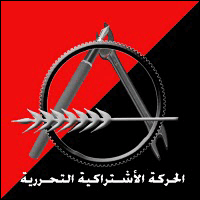Anarchist Federation of Rio de Janeiro – FARJ (Brazil)

- Mikhail Bakunin
The term “organisational dualism”, as it is used in English, serves to explain the conception of organisation that we promote, or what has classically been called the discussion between “party and mass movement”. In short, our especifista tradition has its roots in (Mikhail) Bakunin, (Errico) Malatesta, Dielo Truda (Workers Cause), Federación Anarquista Uruguaya – FAU (Anarchist Federation of Uruguay) and other militants/organisations that have defended this distinction between levels of organisation. That is, a broad level that we call the “social level”, composed of popular movements, and that which we call the “political level”, composed of anarchist militants that are grouped around a defined political and ideological basis.
This model is based on a few positions: that popular movements cannot be confined to a defined ideological camp – and, in this respect, we distinguish ourselves from the anarcho-syndicalists, for example – because they should organise themselves around needs (land, shelter, jobs, etc.), grouping together large sectors of the people. This is the social level or the mass movement, as it has been called historically. The model also contends that, to work in movements, it is not enough to be dissolved – or inserted – in them, even while recognising ourselves as anarchists. It is necessary that we be organised, constituting a significant social force that will facilitate in the promotion of our programme and also in defence against attacks from adversaries that have other programmes. However, one must bear in mind that we do not promote participation in one or other level; anarchists are also workers and are part of this broad group that we call the exploited classes and, therefore, they organise themselves, as a class, in the social movements. Even so, as this level of organisation has its limitations, the anarchists also organise themselves on the political level, as anarchists, as a way to articulate their work and ideas.
Read the rest of this page »
 At the time of writing, ruling class scum (the rich, big bosses, politicians and state managers) from across the globe are hopping on fancy planes to descend, like fleas, onto the posh air conditioned Durban Convention Centre for the COP 17 meeting. In between living in luxury, posing for press pictures, attending cocktail parties, closing business deals, and flashing fake bleached smiles; we are told – by these very same ruling class parasites – that they are coming to Durban and COP 17 to solve global warming. To be sure, the ruling class scum want us to believe that they are Armani-clad superheroes who care about us and who are flying in to save us all. But hold the applause and cheers, because nothing could be further from the truth.
At the time of writing, ruling class scum (the rich, big bosses, politicians and state managers) from across the globe are hopping on fancy planes to descend, like fleas, onto the posh air conditioned Durban Convention Centre for the COP 17 meeting. In between living in luxury, posing for press pictures, attending cocktail parties, closing business deals, and flashing fake bleached smiles; we are told – by these very same ruling class parasites – that they are coming to Durban and COP 17 to solve global warming. To be sure, the ruling class scum want us to believe that they are Armani-clad superheroes who care about us and who are flying in to save us all. But hold the applause and cheers, because nothing could be further from the truth.














